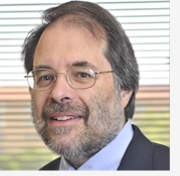
On January 6, 2021, then President Donald Trump spoke to a group of his supporters who had come to Washington, DC, to “protest” the outcome of the 2020 election. In his speech, Trump implored his supporters to march down Pennsylvania Avenue toward the Capitol in order to express their outrage and fight for their cause.
Following the President’s fiery speech, some of the “protestors” transformed into an angry mob of “domestic terrorists,” “seditionists,” and “insurrectionists.” They stormed the Capitol, forcefully entering the House chamber, occupying many offices, stealing and defacing property, and ultimately halting Congress from carrying out its constitutional obligation to count the Electoral College votes certifying Joe Biden as President of the United States.
One week after this violent mob breached the Capitol, Members of Congress returned to the House floor. What followed was an emotional—at times vitriolic—debate about the accountability of the President, who many argued had incited the riot, which resulted in five deaths. The House of Representatives approved one article of impeachment against President Trump for "incitement of insurrection," with 10 Republicans joining all Democrats in a 232-197 vote.
When the Senate trial commences in the days to come, the question confronting both Senators and the public at large will be: Did the President’s rhetoric actually “incite the insurrection?” Answering this question depends in part on proving a cause-and-effect relationship between words and deeds. While many of the insurrectionists claimed they were simply carrying out what President Trump had asked them to do, these declarations may not be enough to make the case.
I believe that the discipline of Communication offers an additional way to bolster and more directly advance the cause-and-effect argument. Allow me to offer a rhetorical perspective, one that is anchored to research I conducted that introduced the concept of “language-in-use.”
In a series of scholarly articles about “language-in-use,” drawing on the research of sociologists Peter Berger and Thomas Luckmann, I argued that ascertaining the effect of presidential discourse simply by observing behavior following that discourse may not always be the only or best metric of effect. Specifically, I documented that when speakers employ carefully chosen language, their words often are repeated and subsequently internalized by audiences.
Much like the functioning of what Aristotle called an enthymeme (a three-part syllogism where one of the premises is unstated), the result is that audiences subconsciously take on the values and beliefs implied by the words of a speaker, fill in the unstated premise, and behave in a manner consistent with those words.
“Language-in-use,” therefore, may offer a more persuasive way to prove that Trump’s rhetoric caused the insurrection. His carefully crafted words and phrases, I submit, were repeated and then internalized by the crowd listening to the President’s speech. This is significant rhetorically because it not only allowed Trump to control the narrative, but also enabled him explicitly and implicitly to prescribe the future behavior of his audience.
Consider the evidence. The following words and statements contained in President Trump’s January 6 speech were repeated verbatim and chanted by those who stormed the Capitol:
- “Stop the steal.”
- “We’ll lose everything.”
- “That’s treason.”
- “Protect the Constitution.”
- “This is our country.”
It must be noted that so much of communication operates through implicature and inference. Thus, although Trump did not explicitly tell the insurrectionists to break into the Capitol, clearly his remarks implied that they should do so. Basic speech act theory explains this: The seeming question, "Do you have the salt?" implies that you should pass me the salt. In Trump's case, phrases such as "let's get wild" implied that the insurrectionists should commit insurrection. They understood precisely what Trump was asking them to do.
Whether this and other rhetorical evidence will be sufficient to convince Senators and the public at large that President Trump “incited insurrection” remains to be seen—and the proceedings as usual may be contaminated by a quest for power that places political party above principle. What is clear, however, is that comparing speakers’ language with the language of their audiences (“language-in-use’) affords us a way to infer a causal connection between words and deeds.
During Trump’s presidency, political observers, including me, continually said that words matter. Words do, indeed, matter. I hope, therefore, that in the future, pundits, the media, and the public will pay closer attention to “language-in-use.” This could provide a strong check on political leaders, holding them more directly accountable and responsible for what they say. Perhaps that will result in less incendiary political rhetoric.
References
Aristotle. Rhetoric. Trans. W. Rhys Roberts. New York: Modern Library, 1954.
Berger, Peter L and Luckmann, Thomas. The Social Construction of Reality (New York: Anchor Books), 1966.
Cherwitz, Richard. "The Contributory Effect of Rhetorical Discourse: A Study of Language in Use." Quarterly Journal of Speech, 66 (1980), 33 50.
Cherwitz, Richard and Theobald-Osborne, John. "Contemporary Developments in Rhetorical Criticism: A Consideration of the Effects of Rhetoric." Studies I Honor of the 75th Anniversary of the Speech Communication Association. Gerald M. Phillips and Julia T. Wood, Eds. (Carbondale, Illinois: Southern Illinois University Press, 1989), pp. 52-80.
Lakoff, George and Johnson, Mark. Metaphors We Live By (Chicago: University of Chicago Press), 1980.
Mannheim, Karl. Ideology and Utopia: An Introduction to the Sociology of Knowledge (New York: Harvest Books), 1938.
Schutz, Alred. Phenomenology of the Social World (Evanston: Northwestern University Press), 1967.
ABOUT THE AUTHOR

Richard Cherwitz is Professor Emeritus in the Moody College of Communication and Founding Director of the Intellectual Entrepreneurship Consortium (IE) at The University of Texas at Austin. Cherwitz is the author of several books, including: Communication and Knowledge: An Investigation in Rhetorical Epistemology; and Rhetoric and Philosophy, and has published numerous articles in the Quarterly Journal of Speech. Cherwitz has received four of the National Communication Association's top awards given to scholars in communication: the Karl R. Wallace Memorial Award, the Douglas Ehninger Distinguished Rhetorical Scholar Award, the Wallace Bacon Lifetime Teaching Excellence Award, and the Donald H. Ecroyd Award for Outstanding Teaching.

